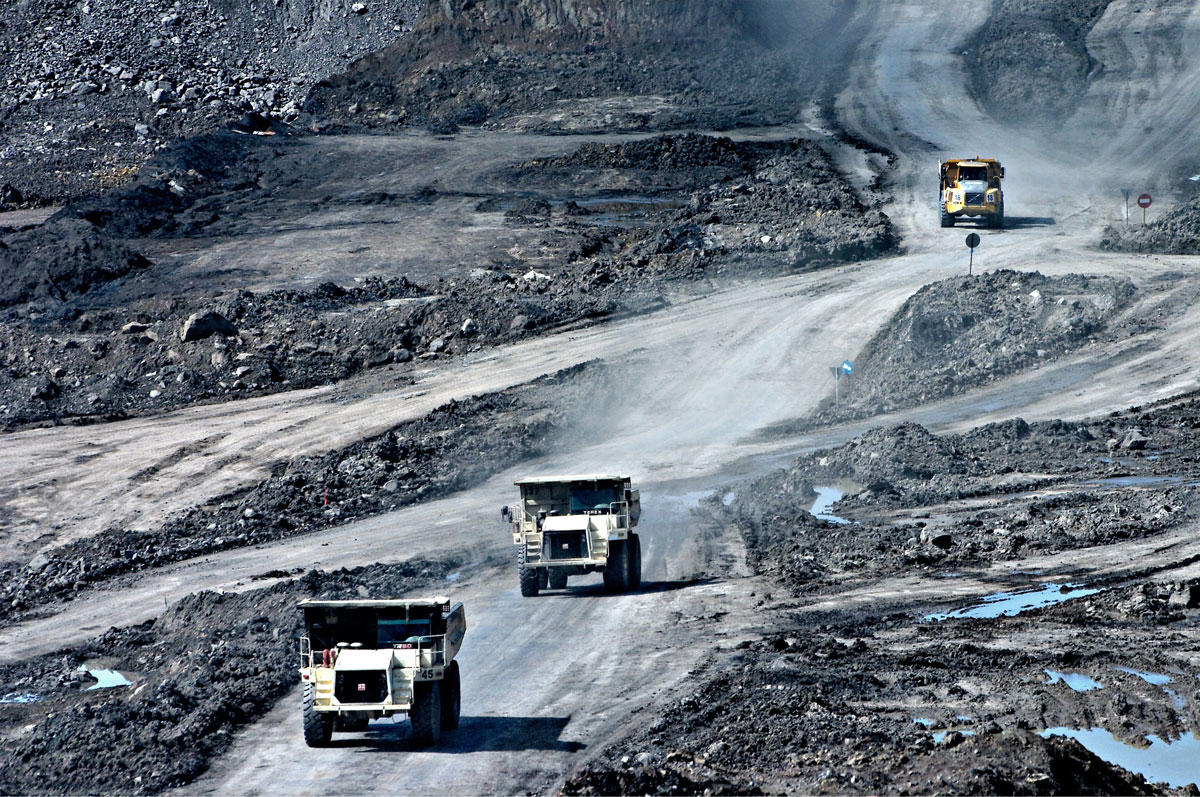Two Bartlett researchers looked at all the world’s fossil-fuel reserves – and found that most of them would need to stay in the ground.

A coal mine in East Kalimantan, Indonesia. Credit: Dominik Vanyi on Unsplash
Such fears preserve policies of energy security, which bind the needs of nations with those of major companies producing oil, gas and coal. Between US$160bn and US$440bn is spent by rich countries each year on tax breaks and infrastructure to keep fossil fuels coming.
Into this century, the relationship between states and Big Energy was unquestioned. Keeping people on the road – and in the air – is an essential function of modern life. But recently, analysts and academics began connecting fossil fuel reserves with climate change. Instead of worrying about where to find the next barrel of oil, the question has turned to how many existing barrels can be tapped without overheating the planet.
82% coal
49% gas
33% oil
Amount of reserves that cannot be burned if we are to hold temperature rises to 2°C by 2050.
For oil, the answer is about two-thirds, according to Christophe McGlade, Research Associate at The Bartlett’s Energy Institute and Paul Ekins, Director of The Bartlett’s Institute for Sustainable Resources. For coal, the dirtiest fossil fuel, the answer is even harsher: only 18% of known extractable reserves could be brought to the surface and used.
These findings were contained in McGlade and Ekins’ seminal 2015 paper, The geographical distribution of fossil fuels unburned in a 2 degree scenario. It’s the 12th most reported piece of research of its age from more than a quarter of a million contenders.
Getting heard above the noise
The Bartlett academics were not the first to analyse ‘unburnable carbon’ but most of the previous work focused on the implications for companies like BP, Exxon and Shell because oil and gas reserves account for so much of these mega-producers’ wealth.
By calculating reserves by geography, McGlade and Ekins elevated the debate to the international level. Countries and companies are bound together in energy security and mitigating climate change. But when push comes to shove, it is nations who decide.
As the International Energy Agency notes: “More than 70% of the US$2 trillion required in the world’s energy supply investment each year, across all domains, either comes from state-directed entities or responds to a full or partial revenue guarantee established by regulation.”
Papers don’t necessarily mean policy
This brings us back to state aid. McGlade and Ekins make clear that nations have to direct less spend to fossil fuels and by implication more to renewable energies. The calculations leave no room for drilling in the Arctic. They also demonstrate how Carbon Capture and Storage – a technology given heroic importance in early climate-change modelling – is no more than a sideshow.
The findings are not purely about the environment and energy. They have an economics underpin. All sorts of variables, such as how much people will drive and how much steel needs to be produced, are captured by the modelling in order to gauge types of energy demand, the associated costs and their effect on the economy. The model seeks out cost-efficiency within the 2°C scenario.
This strengthens the conclusions but makes policy decisions for governments harder. Why would the US leave more than 95% its proven coal wealth untouched? These sensitivities were evident even in news summaries of The Bartlett paper. The Times of India, for example, accurately reported the sacrifices other major countries would have to make but made no mention of India’s obligations.
Any policy acknowledging McGlade and Ekins’ work will cause pain and no doubt more protest at the petrol station. But that hardship would be as nothing compared to burning carelessly all our gas, oil and coal reserves.
 Close
Close




